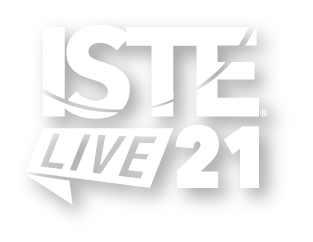

Digging Into Knowledge Through Research Methodology |
Participate and share : Poster
Andreina Sananez Amanda Wanderkoke Andres Serio Carlos Montaño Andreina Paez
Research methodology is usually taught theoretically, so my students approached it pragmatically: They chose a topic that they were passionate about and I only accompanied them in the process of preparing their research work, timely guiding the way forward.
| Audience: | Professional developers, Teachers, Teacher education/higher ed faculty |
| Skill level: | Beginner |
| Attendee devices: | Devices useful |
| Attendee device specification: | Smartphone: Android, iOS, Windows Laptop: Chromebook, Mac, PC Tablet: Android, iOS, Windows |
| Topic: | Personalized learning |
| Grade level: | PK-12 |
| Subject area: | Career and technical education, Social studies |
| ISTE Standards: | For Educators: Collaborator
|
| Additional detail: | Student presentation |
The students will present the process they went through when researching for the project:
1. How to start? Choosing a plausible subject.
2. The problem: narrowing down the subject.
3. Writing the research question, hypothesis, and objectives.
4. Relevance: why is this important and how is it innovative?
5. Digging in: theoretical foundations to support the analysis.
6. Research step by step: describing the analysis methods.
7. Everything to prove: analysis and conclusions.
8. Performing skills: the art of selling your research.
All of the above will be explained by the students on the basis of their own research product: "Impact of injuries on the NFL as an industry, the economic sector and the lives of athletes" (Carlos Montaño & Andres Serio), "Analysis of the viability of human life on Mars from a biological adaptation perspective, as a source of impulse and sustainability for the future of space colonization" (Andreina Sananez & Amanda Wanderkoke)
Gómez Bastar, S. (2012). Metodología de la investigación. Red Tercer Milenio.
Normas APA pro. (2020). Guía Resumen del Estilo APA, Séptima edición. Recuperado de: https://normasapa.pro/
Universidad Pedagógica Experimental Libertador. (2011). Manual de Trabajos de Grado de Especialización y Maestría y Tesis Doctorales. Fondo Editorial de la Universidad Pedagógica Experimental Libertador
Villanueva, G., Casas, M. (enero-junio, 2010). E-competencias : nuevas habilidades del estudiante en la era de la educación, la globalidad y la generación del conocimiento. Signo y Pensamiento, vol. XXIX, núm. 56, pp. 124-138. Pontificia Universidad Javeriana. Recuperado de: https://www.redalyc.org/articulo.oa?id=86019348008

5 Tips for Digital Portfolios in the Classroom
6 Steps to Engage Educators in Virtual Worklabs
Growing High-Flying Staff: Igniting a Culture of Success Using ISTE Standards